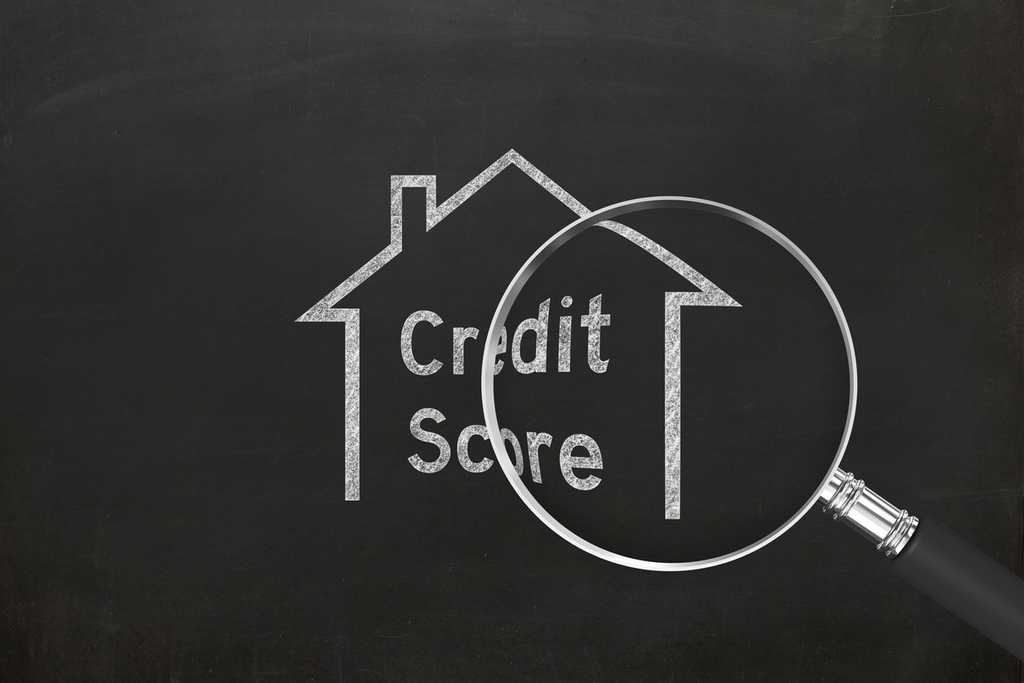Buying a house is likely to be the most important financial transaction that you’ll ever make, and unless you pay cash, there’s no way to do it without sufficient credit. But at the same time, home buyers will always find themselves within a wide spectrum of credit scores, and it can be difficult to know what credit score you’ll need for the type of loan you’re applying for. While having a higher credit score will always allow you to receive lower rates, many people are simply concerned with the minimum credit score required to be approved for their loan.
Minimum Credit Score By Mortgage Loan Type
The lowest possible credit score that you’ll need will be based on the type of loan that you’re applying for.
Conventional loan
When someone in the real estate industry talks about a conventional loan, they‘re referring to a loan on a property that meets the down payment and income requirements set by government agencies such as Fannie Mae and Freddi Mac. This is because the lender is likely to sell the loan to investors some time after closing.
To be approved for a conventional loan, you’ll need to have a credit score that’s considered to be good or excellent. This means that you’ll need a credit score of at least 620, but you’ll receive lower rates and better terms if you have a score of 740 or above, which is considered to be excellent.
Jumbo loan
A jumbo loan is one that’s greater than the limits set by the Federal Housing Finance Administration (FHFA). For a single-family home in 2021 that amount is currently $548,250. But in certain high-cost counties, the ceiling for conforming mortgage limits is now 150% of that limit, or $822,375. Borrowers will need a credit score of at least 700 to qualify for a jumbo loan, and some lenders will ask for scores that are even higher.
FHA loan
These are loans that are insured by the Federal Housing Administration (FHA). These loans currently require a minimum of 3.5% down payment for borrowers and have lower minimum credit score requirements. Currently, you can qualify for an FHA loan with a credit score of 580 or higher. The low down payment and credit score requirements makes this a popular type of loan for first time home buyers.
VA loan
The Department of Veterans Affairs(VA) offers loan options with no down payment and no Personal Mortgage Insurance(PMI) costs to Veterans, Service Members and some military spouses. VA loans also have lower credit score requirements compared to conventional loans. While the VA itself doesn’t require a particular minimum credit score, the private lenders that issue these loans can have their own minimum requirements. Some lenders can have a minimum credit requirement as low as 580, while others can require a higher credit score.
USDA loan
The U.S. Department of Agriculture (USDA) offers a mortgage program with low interest rates and zero down payment options for eligible rural homebuyers. While there is no fixed minimum credit score required to purchase a home through this program, those who have scores of 640 or higher will receive priority. That said, they will accept applicants with lower credit that meet other qualifications. The USDA also accepts applicants who can prove that their credit was affected by circumstances outside of control, such as a medical emergency or a natural disaster. The USDA will also consider applicants with nontraditional credit sources, such as a rental history or utility payments.
What is the Ideal Credit Score to Buy a House?
When it comes to applying for a home mortgage, having a high credit score will allow you to qualify for the most competitive loans with the lowest interest rates. For most purposes, having a credit score of 740 or above is considered to be excellent and will allow you to qualify for any loan.
But will it make a difference if your credit score is much higher than 740? There are some home loan programs that are only available to applicants with very high credit scores of 780 or more. Also, having a credit score that is just above 740 can make you vulnerable to regular fluctuations in your credit score that can cause it to temporarily drop below 740. For example, having a slightly higher balance on your credit cards one month could cause your score to fall by a few points, even if you always avoid interest by paying your balances in full. And even the act of applying for a home mortgage can cause your score to drop a little. That’s why home buyers should strive to have the highest score possible.
Other Considerations When Buying A House
Before you apply for a home mortgage, you’re going to want to check your credit history and your credit score. Thankfully, you can request free copies of your credit reports from the three major consumer credit bureaus (Experian, Equifax and Transunion) through the official site: annualcreditreport.com. Many major credit card issuers offer cardholders their credit score, and some will provide scores for free to non-cardholders as well. Your lender or mortgage broker may also provide you with your credit reports and credit scores as part of the application process.
When you look through your credit reports, you should first check them for accuracy. Make sure that your personal information is correct and up to date. You should also check that the account information included is accurate, and that there are no unauthorized accounts listed. Finding an account on your credit report that you didn’t create is a sign of possible identity theft. When you find inaccurate information, you can contact the credit bureau and request that it be removed. You can also contact the creditor who provided the information to request that they update it with the three major consumer credit bureaus.
What Factors Go Into A Credit Score?
Credit scores are complex formulas that use data from one of your credit histories to produce a single number that’s designed to represent your likelihood of repaying a loan. And although these formulas are considered to be trade secrets, and are never disclosed, we do know much about the most important factors that make up a credit score.
For example, FICO is one of the largest producers of credit scores, and it lists five factors that make up their scores.
- Payment history. This factor makes up 35% of your score and is a measure of how reliable your payments are. Pay on time, and this will reflect well on your credit score, while each late payment will hurt your score. Recent late payments have more impact than those that were made further in the past.
- Amounts owed. This factor includes the amount of debt you have and it makes up 30% of your FICO score. The more debt you have, relative to your available credit, the more negatively this factor will impact your score.
- Length of credit history. The longer your credit history is, the more this factor will help your credit score. Your length of credit history makes up to 10% of your credit score and it includes how long your accounts have been established, including the oldest account you have and the average age of your accounts. It also includes how long it’s been since you’ve used a particular account.
- Credit mix. 10 % of your FICO score takes into account the different types of credit you have, including credit cards, retail accounts, installment loans and mortgages. Just note that you don’t need one of each and FICO discourages consumers from opening up new kinds of loans, merely to try to improve your score.
- New credit. Another 10% of your FICO score is based on your new credit history. This is because opening up several new lines of credit could be considered a sign of potential financial distress. After all, would you loan money to someone who has taken out several other new loans recently?
Even though the general makeup of your credit score is known, there’s also the matter of which credit score will be used for your mortgage application. FICO is a major provider of credit scores to lenders, but it also competes with VantageScore. Both companies offer numerous versions of its credit scores, and it’s up to lenders to decide which version they purchase - borrowers don’t have any say.
Also, both FICO and VantageScore offer versions of their scores that are specifically designed for home mortgage lending. Keep in mind that every credit score created is based on a single credit history from one of the three major consumer credit bureaus. Furthermore, that score will only be based on the data that exists in those credit histories at the moment the score was created. Each day, the credit bureau can receive new data that could produce a different score the next time one is requested.
How To Increase Your Credit Score Before Buying A House
You should take every possible step to increase your credit score before you apply for a home loan. This includes paying off or reducing your balance on as many credit cards as possible. Paying off multiple small balances will help your credit score more than paying off or paying down a single large balance, as having fewer outstanding balances is better than having many. Once you pay off or pay down the balances on your credit cards, you should wait until that statement period ends. Only after the new statement is created will the new balance be reported to the consumer credit bureaus.
If you have installment loans that you can pay off, such as car loans, student loans or personal loans, then you should do so as well. Just be careful not to use up too much of your available funds that you might need for your down payment. It’s also crucial that yourself and any other co-applicants avoid applying for any new credit cards, including store charge cards, or other loans until after you’ve closed on your mortgage. Lenders may suspect that you’re applying for new credit in order to borrow funds for your down payment.
Bottom Line
Having sufficient credit is essential to being approved for a mortgage, and it’s important to know what credit score you need to be approved. By understanding the minimum credit scores required for different types of mortgages, you can choose the program that best meets your needs.

